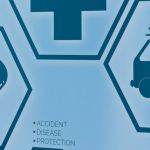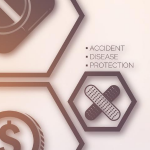CMS | Ambulance Open Door Forum Dec 9
The next CMS Ambulance Open Door Forum scheduled for:
Date: Thursday, December 9, 2021
Start Time: 2:00pm-3:00pm PM Eastern Time (ET);
Please dial-in at least 15 minutes before call start time.
To participate by phone:
Dial: 1-888-455-1397 & Reference Conference Passcode: 8604468
Conference Leaders: Jill Darling, Maria Durham
**This Agenda is Subject to Change**
- Opening Remarks
Chair- Maria Durham, Director, Division of Data Analysis and Market Based Pricing
Moderator – Jill Darling (Office of Communications)
Announcements & Updates
- Emergency Triage, Treat, and Transport (ET3) Model Update
- ET3 Model Website: https://innovation.cms.gov/
innovation-models/et3 - ET3Model@cms.hhs.gov for inquiries
- ET3 Model Listserv for Model updates: https://public.govdelivery.
com/accounts/USCMS/subscriber/ new?topic_id=USCMS_12521
- ET3 Model Website: https://innovation.cms.gov/
- Upcoming Implementation Dates of the Repetitive, Scheduled Non-Emergent Ambulance Transport Prior Authorization Model
- Ground Ambulance & Patient Billing Advisory Committee Member Nomination Period
- Submission Instructions are contained in this Federal Register Notice: https://www.federalregister.
gov/documents/2021/11/23/2021- 25560/ground-ambulance-and- patient-billing-advisory- committee
- Submission Instructions are contained in this Federal Register Notice: https://www.federalregister.
- CY 2022 Ambulance Inflation Factor (AIF) Change Request 12488, Transmittal 11044
- Medicare Ground Ambulance Data Collection System CY 2022 Physician Fee Schedule Final Rule
- Slide presentation will be available at: https://www.cms.gov/Center/
Provider-Type/Ambulances- Services-Center, under Spotlights, Upcoming Events.
- Slide presentation will be available at: https://www.cms.gov/Center/
III. Open Q&A
**DATE IS SUBJECT TO CHANGE**
Next Ambulance Open Door Forum: TBA
ODF email: AMBULANCEODF@cms.hhs.gov
——————————
This Open Door Forum is open to everyone, but if you are a member of the Press, you may listen in but please refrain from asking questions during the Q & A portion of the call. If you have inquiries, please contact CMS at Press@cms.hhs.gov. Thank you.
Open Door Participation Instructions:
This call will be Conference Call Only.
To participate by phone:
Dial: 1-888-455-1397 & Reference Conference Passcode: 8604468
Persons participating by phone do not need to RSVP. TTY Communications Relay Services are available for the Hearing Impaired. For TTY services dial 7-1-1 or 1-800-855-2880. A Relay Communications Assistant will help.
Instant Replay: 1-800-856-2271; Conference Passcode: No Passcode needed
Instant Replay is an audio recording of this call that can be accessed by dialing 1-800-856-2271 and entering the Conference Passcode beginning 1 hours after the call has ended. The recording is available until December 11, 2021, 11:59PM ET.
For ODF schedule updates and E-Mailing List registration, visit our website at http://www.cms.gov/
Were you unable to attend the recent Ambulance ODF call? We encourage you to visit our CMS Podcasts and Transcript webpage where you can listen and view the most recent Ambulance ODF call. Please allow up to three weeks to get both the audio and transcript posted to: https://www.cms.gov/Outreach-
CMS provides free auxiliary aids and services including information in accessible formats. Click here for more information. This will point partners to our CMS.gov version of the “Accessibility & Nondiscrimination notice” page. Thank you.













